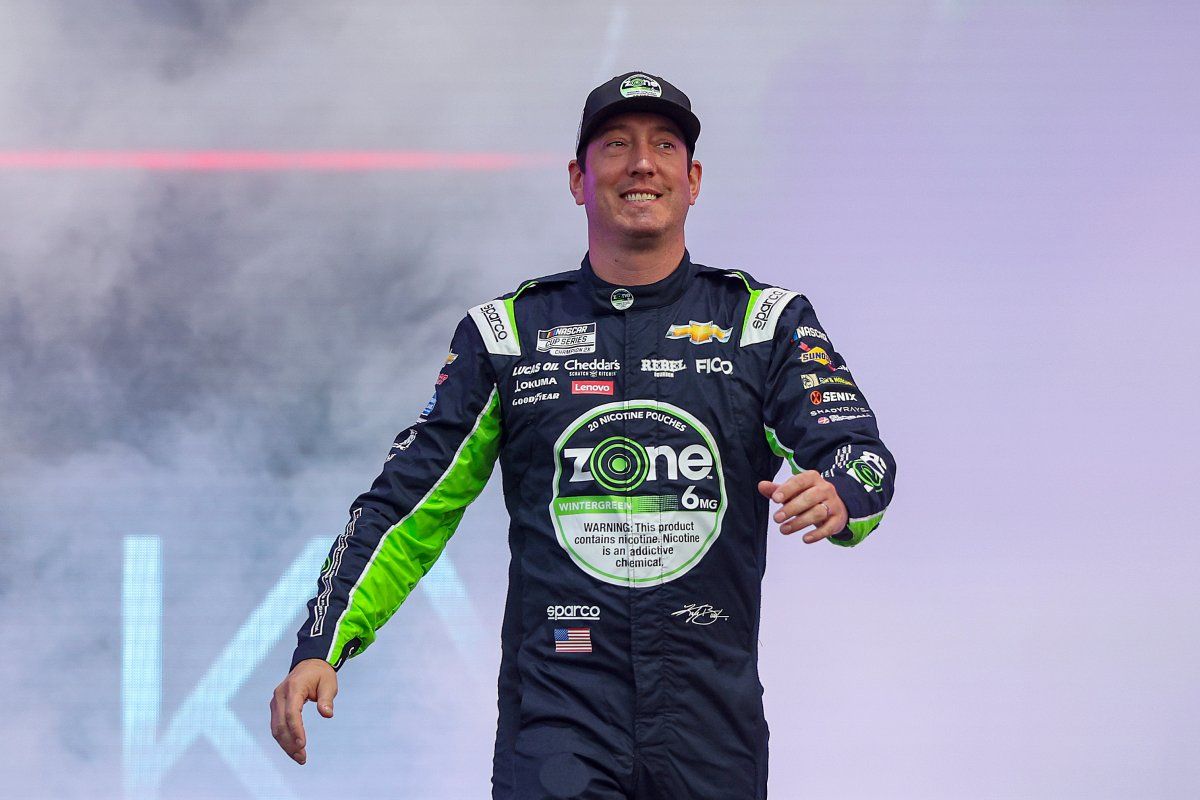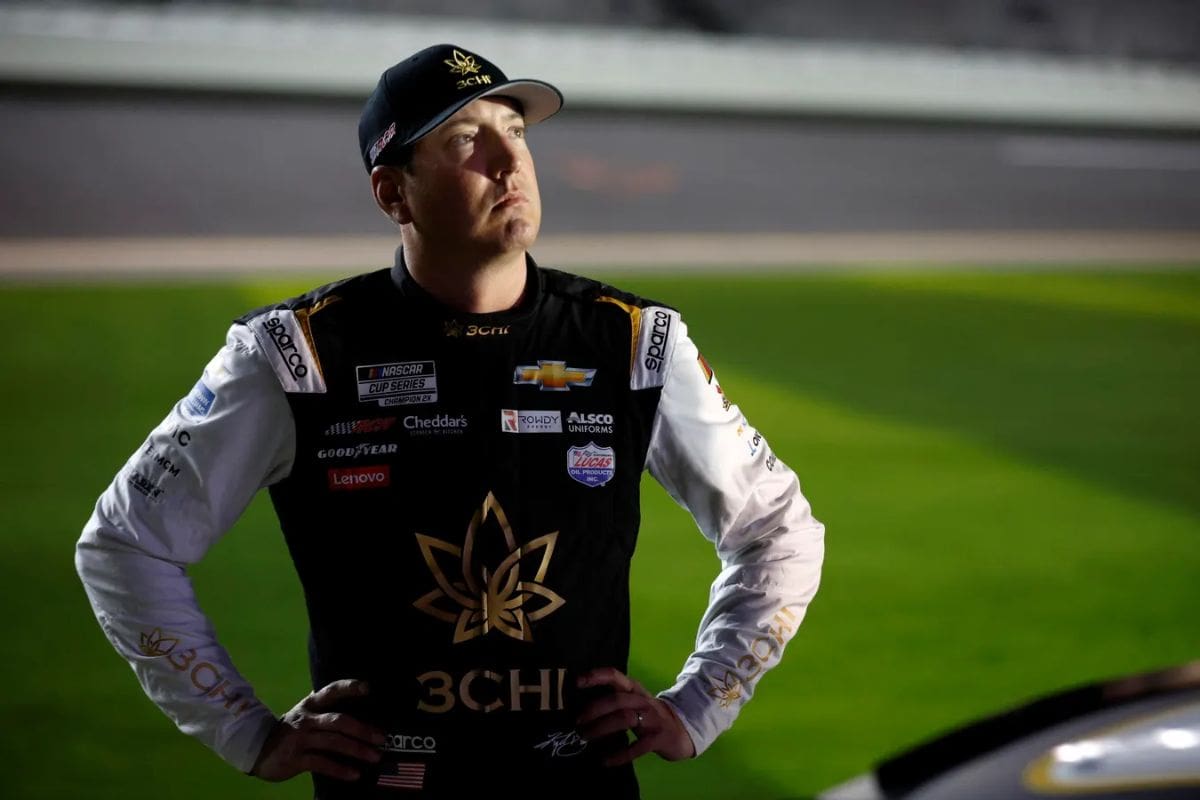Richard Childress Poised to Gain From Tony Stewart’s Exit: As Richard Childress Racing navigates a critical crossroads following Tony Stewart‘s departure, the implications for the organization could be profound. The potential appointment of a seasoned strategist like Greg Zipadelli could improve RCR’s competitive edge, especially in a rapidly evolving NASCAR landscape. Yet, the true measure of this shift will hinge not only on leadership decisions but also on the future of star driver Kyle Busch, whose own path may influence RCR’s fortunes. What strategies will RCR employ to optimize this moment of change, and how might Busch’s choices reshape the team’s dynamics?
Key Highlights
- Richard Childress Racing (RCR) can capitalize on the vacuum left by Tony Stewart’s exit to enhance competitiveness in NASCAR.
- RCR’s recent leadership changes signal a readiness to implement innovative strategies that could improve performance.
- The inclusion of experienced figures like Greg Zipadelli may provide RCR with fresh insights to navigate the competitive landscape.
- Kyle Busch’s call for cultural transformation aligns with the need for RCR to adapt following Stewart’s departure.
Importance of the Competition Director Role
The role of Competition Director is vital in NASCAR, serving as the linchpin that orchestrates a team’s tactical approach to racing and ultimately influences their performance on the track. This multifaceted position encompasses a multitude of responsibilities, from developing race strategies to ensuring optimal vehicle performance. The Competition Director must possess a deep understanding of the sport, combining technical knowledge with an acute awareness of the competition landscape.
In NASCAR, where milliseconds can determine race outcomes, the Competition Director’s ability to synthesize data and respond swiftly to dynamic race conditions is essential. They are responsible for analyzing telemetry, coordinating with engineers, and making real-time decisions that can greatly impact race day success. Additionally, this role fosters collaboration between different departments, ensuring that the driver, crew chief, and pit crew are aligned in their objectives.
As the sport evolves, so too does the need for innovative thinking within this position. The Competition Director must remain adaptable, integrating advancements in technology and data analytics into their strategic framework. Furthermore, attracting and retaining top talent in this role is increasingly challenging, particularly as larger teams secure experienced professionals.
In the wake of shifts within the NASCAR landscape, such as the potential departure of key figures, the strategic acquisition of a proficient Competition Director could provide teams like Richard Childress Racing a competitive edge. This highlights the critical nature of the role in shaping a team’s path and success in the demanding arena of NASCAR racing.
Potential Impact of Greg Zipadelli
Amidst the challenges faced by Richard Childress Racing, the potential inclusion of Greg Zipadelli as Competition Director could serve as a vital factor in revitalizing the team’s performance and strategy. Zipadelli’s extensive experience, particularly during his tenure at Stewart-Haas Racing, positions him distinctly to address the current woes plaguing RCR. His involvement in multiple championship-winning seasons equips him with the insights necessary to navigate the complexities of competitive racing.
The departure of Andy Petree marked a notable turning point for RCR, suggesting a readiness for transformative change within the organization. The team’s struggles, highlighted by Kyle Busch’s disappointing standings, emphasize an urgent need for cutting-edge leadership. Zipadelli’s proven track record, which includes 56 wins and a championship, offers a glimmer of hope for a team desperately seeking to regain its competitive edge.
Insider Kyle Dalton emphasizes the importance of a fresh perspective, noting that Zipadelli’s arrival could introduce tactics that have been successful in the past. This new approach may not only improve the technical aspects of the team but also foster a culture of accountability and excellence.
“I have to think a new set of eyes coming in and more importantly, a pair that has been part of multiple championships with Tony Stewart and has been at SHR for more than a dozen years, including the 2014 Cup Series championship and 56 wins, can only help.” Dalton
In a sport where margins are thin, the right leadership can catalyze performance improvements. If Zipadelli assumes the role of Competition Director, his expertise could be instrumental in reshaping RCR’s path, ultimately helping to restore the team to its rightful place among the NASCAR elite. The potential for revitalization is palpable, and the upcoming months will be vital in determining the effectiveness of this tactical pivot.
Kyle Busch’s Need for Change
Recognizing the urgent necessity for a cultural transformation within Richard Childress Racing, Kyle Busch has articulated his concerns about the current environment, highlighting the need for substantial changes to improve the team’s competitiveness and cohesion moving forward. Busch’s insights come at a crucial moment for RCR, which has undergone considerable leadership shifts, indicating a potential for revitalization within the organization.
In his exclusive interview, Busch emphasized that the existing framework at RCR may not be conducive to achieving the desired performance levels, particularly in a highly competitive NASCAR landscape. For a driver of Busch’s caliber, the expectation is not merely to participate but to contend for championships. His call for a cultural shake-up reflects a broader understanding that success in motorsports transcends technical adjustments; it involves fostering a unified, motivated team committed to a clear vision.
The recent executive overhaul at RCR signals that the organization is receptive to change, yet the effectiveness of these new directives remains to be seen. Busch’s concerns serve as both a warning and a rallying cry for RCR to adopt a more dynamic approach. The infusion of fresh talent and ideas may provide the necessary momentum, but it also demands a steadfast commitment from all levels of the organization.
Possibility of Kyle Busch’s Departure
Given the challenges faced by Kyle Busch at Richard Childress Racing, speculation surrounding his potential departure is gaining traction as fans voice their hopes for a fresh start with Spire Motorsports. The two-time champion, now 39, finds himself in a precarious position after a disappointing performance in the current season. Despite being under contract until 2025, the dynamic landscape within the team raises questions about his future:
- Performance Decline: Busch has struggled to regain his winning form, leading to frustrations that could prompt a change.
- Team Dynamics: The shakeup at RCR, highlighted by the departure of Corey LaJoie from the No. 7 seat, introduces uncertainty regarding Busch’s role and support within the organization.
- Fan Sentiment: The outcry from fans for Busch to join Spire Motorsports signals a desire for revitalization, potentially influencing decision-makers at RCR.
- Contractual Considerations: While Busch is bound by contract, the fluid nature of contracts in motorsports can create loopholes that allow for potential exits under certain conditions.
The fact that Busch’s tenure at RCR has not unfolded as anticipated could prompt both parties to investigate alternative paths.
If Richard Childress is willing to let go of his star driver, the implications could be considerable—not only for Busch’s career path but also for the tactical positioning of RCR in a competitive landscape.
Factors Affecting Busch’s Future
Numerous factors are converging to shape Kyle Busch‘s future in NASCAR, with his current struggles at Richard Childress Racing prompting a reevaluation of his options within the sport. The mixed performance of the No. 8 Chevy has left Busch at a crossroads, raising questions about his long-term viability at RCR. The possibility of a lucrative offer from Jeff Dickerson, who has shown a willingness to invest, adds another layer of complexity.
The friendship between Busch and Dickerson, solidified by the sale of his Truck Series team, KBM, to Dickerson last year, could facilitate a smooth changeover should Busch choose to depart. Furthermore, the prospect of reuniting with veteran crew chief Rodney Childers at Spire Motorsports in 2025 presents an enticing opportunity to revitalize his career.
While a return to Spire might feel like a homecoming, the looming question is whether RCR can meaningfully improve its performance before the end of the 2024 season. A victory could potentially alter Busch’s path, yet the likelihood of such an outcome seems increasingly remote given the team’s current state.
News in Brief: Richard Childress Poised to Gain From Tony Stewart’s Exit
The departure of Tony Stewart heralds a crucial moment for Richard Childress Racing, presenting an opportunity to reshape its competitive strategies.
The potential integration of seasoned figures like Greg Zipadelli could foster improved team cohesion and innovation.
As Kyle Busch contemplates his future amidst these changes, the dynamics within RCR may greatly influence his decision.
Ultimately, this changing phase could position RCR to capitalize on emerging opportunities, potentially redefining its path in NASCAR’s evolving landscape.
ALSO READ: Richard Childress’ Cup Series Prospects Shine Despite Kyle Busch and Austin Dillon’s Slump



